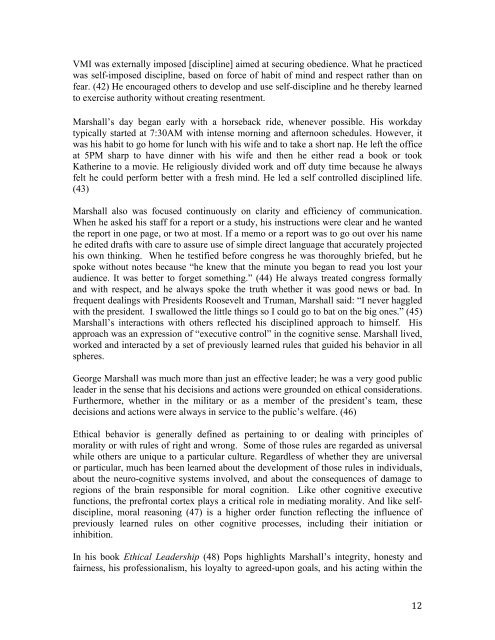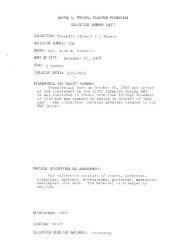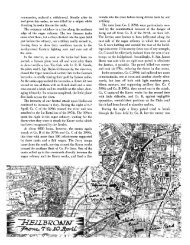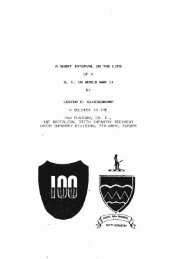General George Catlett Marshall - The George C. Marshall Foundation
General George Catlett Marshall - The George C. Marshall Foundation
General George Catlett Marshall - The George C. Marshall Foundation
You also want an ePaper? Increase the reach of your titles
YUMPU automatically turns print PDFs into web optimized ePapers that Google loves.
VMI was externally imposed [discipline] aimed at securing obedience. What he practiced<br />
was self-imposed discipline, based on force of habit of mind and respect rather than on<br />
fear. (42) He encouraged others to develop and use self-discipline and he thereby learned<br />
to exercise authority without creating resentment.<br />
<strong>Marshall</strong>’s day began early with a horseback ride, whenever possible. His workday<br />
typically started at 7:30AM with intense morning and afternoon schedules. However, it<br />
was his habit to go home for lunch with his wife and to take a short nap. He left the office<br />
at 5PM sharp to have dinner with his wife and then he either read a book or took<br />
Katherine to a movie. He religiously divided work and off duty time because he always<br />
felt he could perform better with a fresh mind. He led a self controlled disciplined life.<br />
(43)<br />
<strong>Marshall</strong> also was focused continuously on clarity and efficiency of communication.<br />
When he asked his staff for a report or a study, his instructions were clear and he wanted<br />
the report in one page, or two at most. If a memo or a report was to go out over his name<br />
he edited drafts with care to assure use of simple direct language that accurately projected<br />
his own thinking. When he testified before congress he was thoroughly briefed, but he<br />
spoke without notes because “he knew that the minute you began to read you lost your<br />
audience. It was better to forget something.” (44) He always treated congress formally<br />
and with respect, and he always spoke the truth whether it was good news or bad. In<br />
frequent dealings with Presidents Roosevelt and Truman, <strong>Marshall</strong> said: “I never haggled<br />
with the president. I swallowed the little things so I could go to bat on the big ones.” (45)<br />
<strong>Marshall</strong>’s interactions with others reflected his disciplined approach to himself. His<br />
approach was an expression of “executive control” in the cognitive sense. <strong>Marshall</strong> lived,<br />
worked and interacted by a set of previously learned rules that guided his behavior in all<br />
spheres.<br />
<strong>George</strong> <strong>Marshall</strong> was much more than just an effective leader; he was a very good public<br />
leader in the sense that his decisions and actions were grounded on ethical considerations.<br />
Furthermore, whether in the military or as a member of the president’s team, these<br />
decisions and actions were always in service to the public’s welfare. (46)<br />
Ethical behavior is generally defined as pertaining to or dealing with principles of<br />
morality or with rules of right and wrong. Some of those rules are regarded as universal<br />
while others are unique to a particular culture. Regardless of whether they are universal<br />
or particular, much has been learned about the development of those rules in individuals,<br />
about the neuro-cognitive systems involved, and about the consequences of damage to<br />
regions of the brain responsible for moral cognition. Like other cognitive executive<br />
functions, the prefrontal cortex plays a critical role in mediating morality. And like selfdiscipline,<br />
moral reasoning (47) is a higher order function reflecting the influence of<br />
previously learned rules on other cognitive processes, including their initiation or<br />
inhibition.<br />
In his book Ethical Leadership (48) Pops highlights <strong>Marshall</strong>’s integrity, honesty and<br />
fairness, his professionalism, his loyalty to agreed-upon goals, and his acting within the<br />
12

















